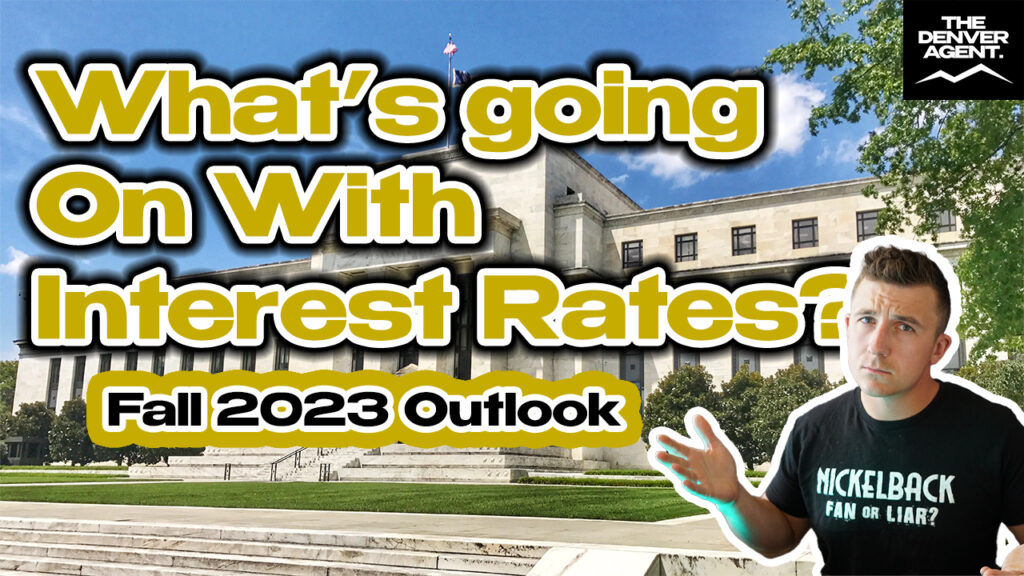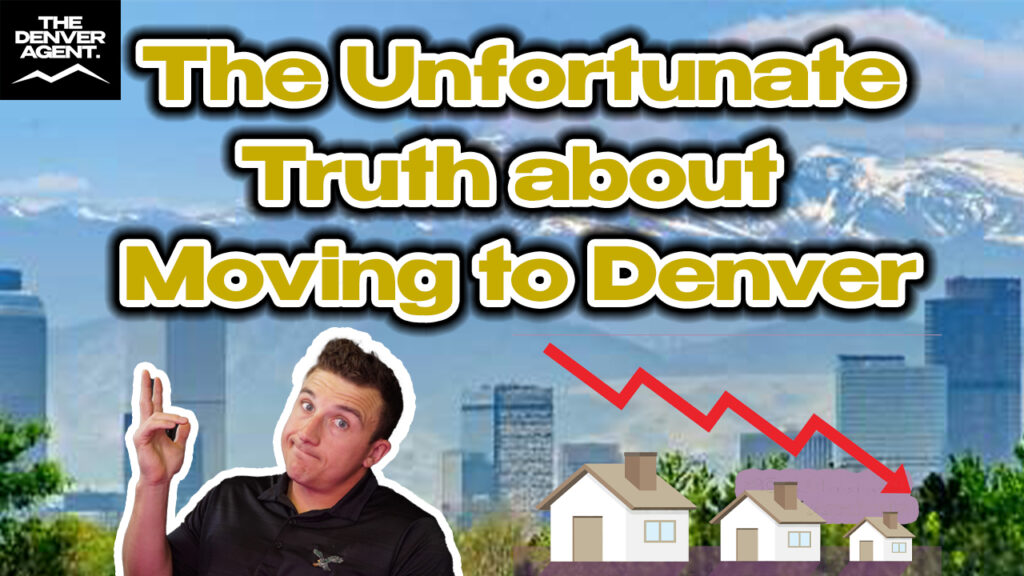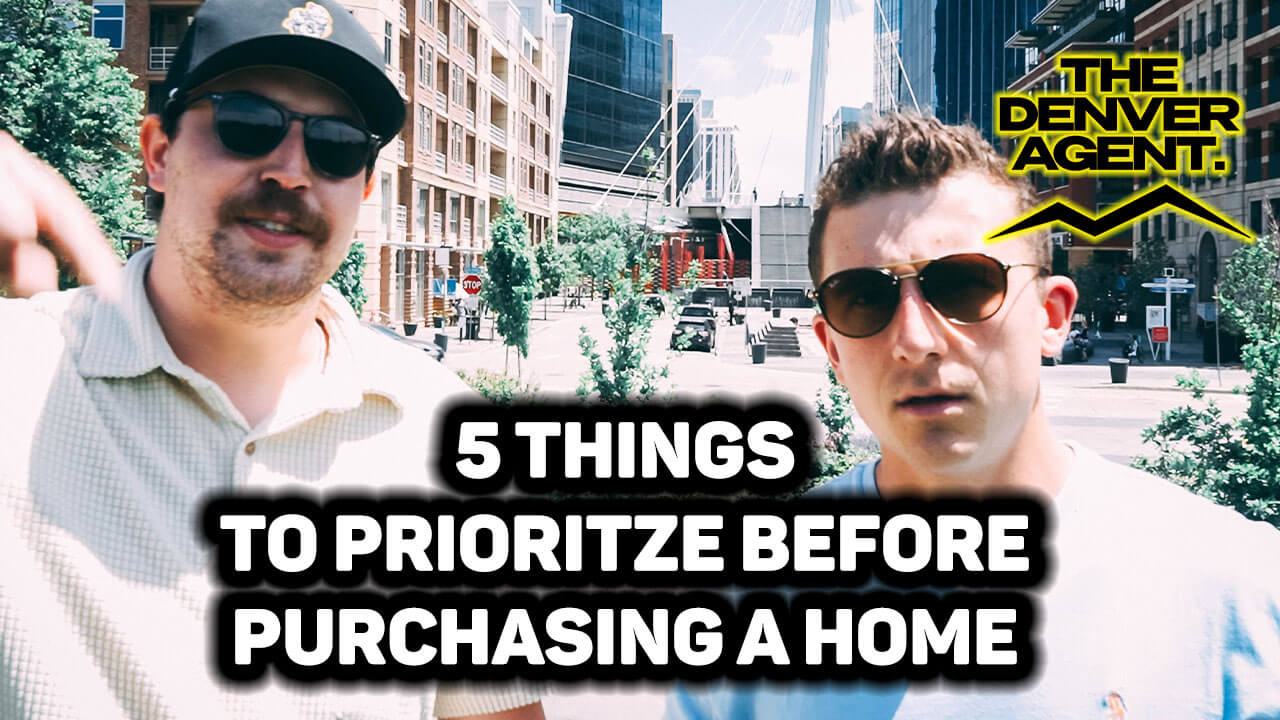You may have heard the buzz about the Denver housing market. You may have asked, too, is Denver a housing bubble? This article will explore key factors in Denver’s real estate market. Also, we will help you decide whether Denver housing is a bubble or not.
I am Ryan Lang, a realtor in Denver, Colorado. As an experienced realtor, I will guide you in locating a rewarding Denver home. But before that, let’s dive into the Denver housing market.
If you are too busy to read the whole article, check out our YouTube video below for a summary of the article on the question: Is Denver a Housing Bubble?
Understanding Housing Bubbles
A housing bubble, as defined by experts, occurs when housing prices surge. It could occur due to high demand, speculation, and excessive spending. The price activities can lead to a sudden collapse. But understand that the process involves several stages, which include:
1. Ramp in Prices Fueled by Demand:
Two factors created an allure for the Denver housing market. First, Denver’s outdoor lifestyle and low interest rates created a perfect storm. It propelled housing prices to new heights.
The pandemic prompted a shift towards more spacious and outdoor-centric living. Denver is a top choice for homebuyers seeking a combination of natural beauty and urban amenities. The demand surge contributed to the property value. Also, limited housing resulted in a rapid property price rise in Mile-High City.
2. Speculators Enter the Market:
Investors recognized the potential in Denver’s red-hot housing market. That’s why they arrive in droves to capitalize on its promising prospects. They engaged in property renovation and resale, intensifying the demand.
Such actions above not only escalated prices but also revitalized neighborhoods. Also, the speculators undertook home improvement projects, further underscoring the city’s desirability. The Denver housing market evolved as speculators seized opportunities. They helped the real estate sector and stimulated the broader economy.
3. Demand Decreases, Supply Increases:
When interest rates began to rise, it prompted a natural cooling of the housing market. Borrowing became less affordable.
However, Denver’s housing supply-side story is unique. Homeowners are reluctant to part with their properties due to low interest rates. It became a phenomenon often referred to as the “golden handcuff.”
The reluctance to sell has created a situation where supply struggles to meet demand. Thus, it ensures that the city’s real estate market remains competitive. Homes remain a prized commodity for prospective buyers.
Is Denver a Housing Bubble?
So, is Denver currently in a housing bubble? While we can’t predict the future, we can analyze the situation. Prices indeed inflated at one point, but demand in Denver remains strong. The supply needs to increase more. Denver housing market forecast breakdown.
Decrease in Demand:
Higher interest rates indeed tempered the once-exuberant Denver housing market demand. The Mile-High City’s allure remains strong.
Denver offers a unique blend of outdoor recreation and urban amenities. Also, the thriving job market continues to draw people seeking a high quality of life. So, demand may have eased, but Denver’s appeal remains intact. Thus, it makes Denver a desirable destination for individuals and family residents.
Limited Supply:
Denver’s limited housing supply stems from a phenomenon known as the “golden handcuff.” Homeowners enjoying low interest rates become hesitant to part ways with their properties.
The supplier’s reluctance to sell combines with the city’s thriving real estate market. It creates a situation where the supply falls below the demand. As a result, prospective buyers face fierce competition. Thus, available homes are scarce in the vibrant and sought-after Denver city.
What Should You Do About Denver Housing Bubble?
As someone looking to buy a home, trying to time a potential bubble is risky. Here’s what you should consider:
Buy a Denver Home Now:
So, is Denver a housing bubble? Yes, it is. It offers you an opportunity to buy a home in Denver at the current low-interest rates, as it’s prudent. Thus, you can secure an affordable mortgage and beat the competitor surge.
Also, market demand continues to outpace supply. Taking action now allows you to establish a foothold. Denver’s real estate landscape and cause future equity growth when the market evolves.
Prepare for Rate Changes:
Staying vigilant about interest rate fluctuations is crucial for any prospective Denver homebuyer. A dramatic drop in rates may not be imminent. Even minor changes can make a significant impact on your affordability.
Being proactive and adaptable to changing interest rates can make a difference.
Realistic Expectations:
Denver’s competitive housing market demands a realistic mindset from prospective buyers. With a high demand and limited supply, properties often sell fast. You may need to decide fast when finding the right home. It’s okay to submit offers or have some flexibility in locating homes.
You can reduce frustration by aligning your expectations with the market’s realities. It will also increase your chances of success and secure a home that meets your needs. Remember, it is a dynamic and fast-paced environment.
Consult a Realtor:
Are you considering the complex Denver housing market? Seeking the guidance of an experienced local real estate professional is a wise step. As a realtor, I offer invaluable insights into Denver’s neighborhoods and market trends. I also help with negotiation strategies to see you secure your ideal home.
As a realtor, I tailor my advice to meet your specific needs. Even if you’re a first-time or seasoned investor, trust the Denver agent with your home-buy tour. I guide you in making well-informed decisions and explore Denver’s hidden gems. That helps you find the right property in line with your goals.
Final Thoughts on the Denver Housing Bubble
There is enough information to answer the question: is Denver a housing bubble? But, it may be more accurate to describe Denver’s housing market as healthy and robust. However, making a Denver housing market forecast without ample information may be uncertain.
There are clear signs that Denver is in a housing bubble in Denver’s real estate market. Some evidence includes the growing attraction of home buyers. But the supply remains limited. So, to make the right decision, the advice above will help while speaking with local experts.
Denver offers an exciting real estate landscape. But wisely navigating home ownership can lead to a successful investment in your future. So, if you need a reliable Real estate agent in Denver, let’s talk. We can tour choice real estate properties or visit affordable Denver suburbs in Denver. We could also play golf and have coffee or beer during the tour. Anything that helps you find the best home in the Denver area.
Disclaimer: This article does not serve as financial advice. Please consult a financial advisor about the Denver housing market forecast. But you can speak with us for a real estate professional or personalized guidance.
How Long Does It Take to Sell a Home in Colorado?
The time it takes to sell a home in Colorado varies depending on market conditions and other factors like the price and condition of your home. It may only take a few weeks in a strong market, but it could take several months in a slow market.
What are the Benefits of Being a First-Time Home Seller in Colorado?
As a first-time home seller in Colorado, you may enjoy some advantages, including:
Less emotional attachment: As a first-time seller, you might have little feelings about the property, making it easier to negotiate and decide based on market conditions.
Greater negotiating power: If your property is in high demand, you may be better positioned to negotiate a higher price.
No previous sales history: Potential buyers might see you as more flexible and open to negotiation if you have not sold a property before.
No past real estate mistakes: As a first-time seller, you likely haven’t made any errors in previous real estate transactions, giving you a clean slate and more peace of mind.
Opportunity to learn: Selling your first home can be a learning experience, allowing you to gain knowledge and insights into the Colorado real estate market and the home-selling process.
What Should I Consider Before Selling My Colorado Home?
Before selling your Colorado home, consider the following questions:
What is your motivation for selling? – Understanding your reasons can help you make informed decisions and set realistic expectations.
What is your desired selling price? – To establish a target price, consider current market conditions and recent sales of similar homes in your area.
Are you willing to make repairs or renovations? – Consider the improvements you may need to make to attract potential buyers and increase your home’s value.
How will you market your home? – Determine the most effective methods for advertising and promoting your property, such as hiring a Colorado real estate agent, listing your home online, or hosting open houses.
What terms of sale are you willing to accept? – Consider factors like the closing date, contingencies, and the buyer’s down payment amount.
How do you plan to handle negotiations and closing? – Decide whether a real estate agent or a lawyer will handle the negotiations and closing, and be aware of the fees and expenses involved.
Are you familiar with Colorado’s real estate laws and regulations? – Familiarize yourself with local real estate laws and regulations, such as tax rules, zoning laws, and other legal requirements.
By considering these questions and being well-informed, you can make selling your Colorado home smoother and more successful.







